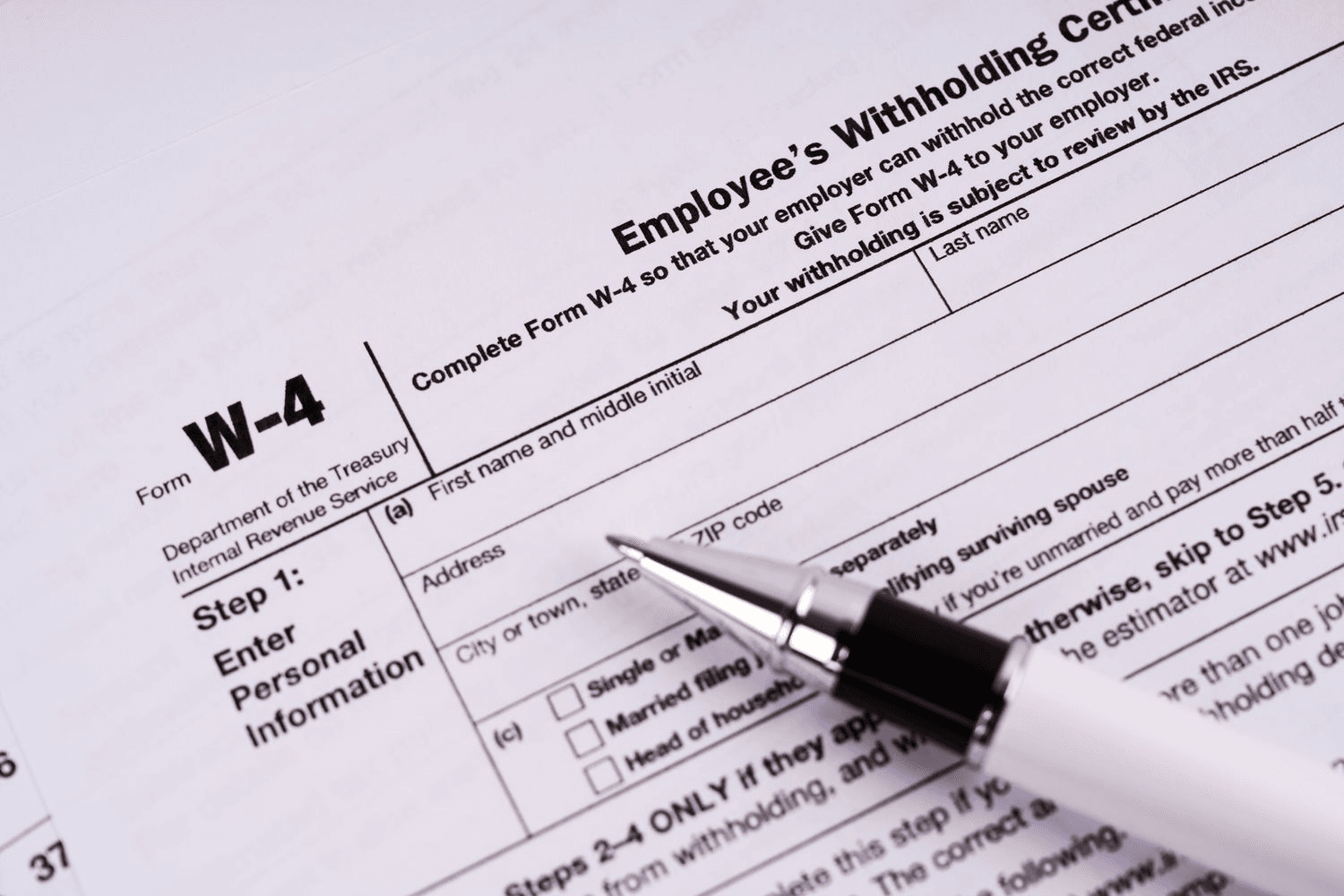What Is IRS Form W-4? A Must-Know Guide for Employees and Employers

What Is IRS Form W-4? A Must-Know Guide for Employees and Employers
Whether you just got hired or started a side job, you’ve probably been handed a W-4 form. This document might seem routine, but filling it out correctly can make a big difference in your tax refund or tax bill.
At TAXtical, we break down the basics of Form W-4—what it is, who needs it, and why getting it right is crucial for both employees and employers.
What Is Form W-4?
IRS Form W-4, officially known as the Employee's Withholding Certificate, tells your employer how much federal income tax to withhold from your paycheck.
The information you provide on this form—like your filing status, dependents, and other income—helps your employer estimate your total tax liability for the year and withhold accordingly. Too little withheld? You may owe the IRS at tax time. Too much? You’ll get a refund—but it's money you could have had sooner.
Who Fills Out Form W-4?
Form W-4 is typically filled out by:
New employees when starting a job
Current employees who have:
Changed their filing status (e.g., got married or divorced)
Gained or lost dependents
Taken on a second job or have new outside income
Want to adjust their tax withholding to avoid surprises at tax time
Employers are required by law to have a completed W-4 on file for each employee and to use the information provided to calculate proper tax withholding.
Why Is Form W-4 Important?
A properly completed Form W-4 helps you:
✅ Get Your Withholding Right
The goal is to withhold just enough tax so you don’t owe or overpay come tax season. The W-4 helps you balance this.
✅ Avoid Surprises at Tax Time
A major life change (like getting married or picking up a second job) can affect your tax bracket. Updating your W-4 helps avoid underpayment penalties or unexpected tax bills.
✅ Maximize Your Paycheck
If you consistently receive large refunds, you might be over-withholding. Adjusting your W-4 can free up more money in each paycheck throughout the year.
What’s New on the W-4?
Since 2020, the IRS redesigned Form W-4 to eliminate allowances and make calculations more accurate and transparent. It now includes:
Filing status selection (Single, Married, Head of Household)
Sections for multiple jobs or working spouses
Deductions and credits (like child tax credit)
Additional withholding amounts (optional)
At TAXtical, we can help you walk through the new version of the form step by step.
When Should You Update Your W-4?
You should consider updating your W-4 if you:
Start a new job
Experience a major life event (marriage, divorce, having a child)
Get a raise, second job, or freelance income
Want to change how much tax is withheld from your paycheck
There’s no penalty for updating your W-4, and you can submit a new one to your employer at any time.
How to Fill Out Form W-4
Here are the basic steps:
Download the latest version of Form W-4 from the IRS website
Complete personal information and filing status
Fill out additional steps if you have multiple jobs or claim dependents
Add any extra withholding (if desired)
Sign and submit it to your employer—not the IRS
💡 Tip from TAXtical: If you’re unsure how much to withhold, use the IRS Tax Withholding Estimator or ask us for personalized help.
Let TAXtical Help You With Your W-4 📣
Not sure how to fill out your W-4 form correctly? TAXtical is here to guide you. Whether you’re an employee needing help adjusting your withholding or an employer managing onboarding, our tax professionals make it simple.
📞 Contact Us Today
Need help understanding your W-4 or optimizing your paycheck?
👉 Schedule a free consultation with TAXtical and let’s make your tax life easier.

